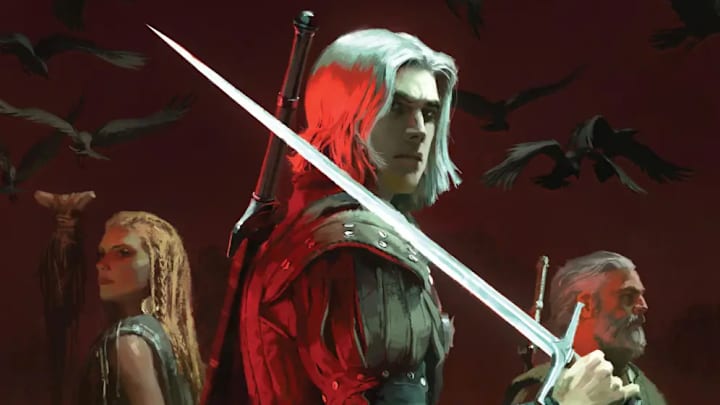Editor's note: This article was originally published on July 5, 2023. It has been updated to include the new Witcher novel CROSSROADS OF RAVENS, which released in Poland in December 2024 and globally on September 30, 2025.
When The Witcher season 3 premiered on Netflix in mid-2023, it maked one of the most ambitious turns for the epic television series yet. Featuring Henry Cavill’s final performance as the show’s titular monster-hunter, Geralt of Rivia, before Liam Hemsworth takes over the role in season 4, it adapted one of the biggest turning points in Andrzej Sapkowski's Witcher book series, the novel The Time of Contempt. And while it had its fair share of criticism, season 3 absolutely nailed some of the most crucial moments, like Geralt's iconic duel with the sorcerer Vilgefortz of Roggeveen.
Believe it or not, we're not only a few weeks away from Hemsworth's debut in The Witcher season 4. The penultimate season of the series will wade into material from Baptism of Fire and beyond, introducing fan-favorite characters like Regis and loathsome villains like Leo Bonhart. It premieres October 30 on Netflix.
The Netflix show isn't the only exciting thing happening in the world of The Witcher. On September 30, Andrzej Sapkowski released his first new Witcher novel in more than a decade: Crossroads of Ravens. This standalone prequel takes readers back to Geralt of Rivia's very first adventures, when he was still trying to find his way as a witcher in a Continent filled with monsters, prejudice, and magic. I've had a chance to read it and enjoyed it thoroughly; check out my spoiler-free review here.
In celebration of the upcoming season of the television show as well as Crossroads of Ravens, we’re looking back on the book saga as a whole. Long before Netflix came into the picture, before CD Projekt Red crafted its mega-hit video game series, Andrzej Sapkowski’s Witcher novels and short stories had already captivated readers the world over. Let’s go through each book, ranked worst to best!

9. Blood of Elves (The Witcher Saga #1)
As it was the first full-length Witcher novel, Blood of Elves was a huge step forward for the series. It also experienced some growing pains. Up until Blood of Elves, Sapkowski had written mainly short fiction revolving around Geralt and his on-again-off-again sorceress paramour Yennefer of Vengerberg. Blood of Elves is somewhat torn between Sapkowski’s previous style of weaving together short stories, and the novel-length works that would go on to define The Witcher Saga proper. The pacing isn’t as smooth as some other entries in the series, and the ending is rather anti-climactic.
That’s not to say Blood of Elves doesn’t have its highlights. It’s the only time in the book series that we really get to spend time at the witcher keep of Kaer Morhen. It features a great set piece at the elven ruins of Shaerrawedd, which we saw adapted in the season 3 premiere of Netflix’s TV show. It also introduced readers to the city of Oxenfurt, as well as Redanian spymaster Dijkstra and his sorceress co-conspirator Philippa Eilheart, both of whom went on to become fan favorites.
Overall, Blood of Elves pales in comparison to both the short fiction collections where Sapkowski was really in his element, as well as the later novels in the series where he’d nailed down his approach. It’s not a bad book, but if any single volume of The Witcher Saga isn’t going to survive the literary equivalent to the Trial of the Grasses, it’s this one.
